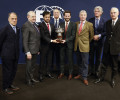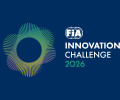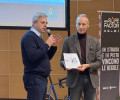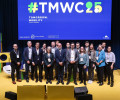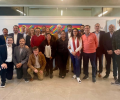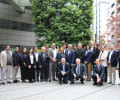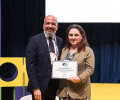THE IMPACT OF MOTOR INSURANCE ON ROAD SAFETY DISCUSSED AT FIA HIGH LEVEL PANEL WORKSHOP
On 5 October, the FIA High Level Panel for Road Safety (HLP) chaired by FIA President Jean Todt held an online workshop entitled “Motor Insurance and Road Safety” gathering about 70 participants. Building on the outcomes of the “Strategic Discussion on Automotive Insurance and Road Safety: Aligning the Stars to Pave the Way to Safer Mobility”, the workshop aimed at facilitating the dialogue between road safety experts, representatives from governments, multilateral Development Banks and the industry on the synergies between motor insurance and road safety.

In the opening session, FIA Deputy President for Automobile Mobility and Tourism Thierry Willemarck, Global Federation of Insurance Associations (GFIA) President Don Forgeron, and Asociación de Superintendentes de Seguros de Latinoamerica (ASSAL) President Tomás Soley highlighted areas in which the insurance sector and motor insurance can contribute to improving road safety. They all expressed the eagerness of their organisations to cooperate on this issue.
Two parallel sessions were then held: one dedicated to the situation in low- and middle-income countries (LMICs) where, in many jurisdictions, motor insurance remains underdeveloped, and the other one focusing on high-income countries (HICs) where data and technology can offer new opportunities to promote safer behaviours.
The first session, moderated by HLP Secretary Miquel Nadal, focused on the obstacles hindering the development of motor insurance in LMICs. Several elements were identified: poor observance of compulsory measures (usually linked to inadequate enforcement), a dichotomy comprising poor financial viability for insurance companies and high prices for drivers, and in some cases, a lack of adequate technical expertise from the public authorities, among others.
The suggestions put forward to achieve a more beneficial linkage between motor insurance and road safety included:
- Link insurance premium to actual infrastructure use;
- Fund insurance through the tax system;
- Link insurance premiums to people rather than vehicles (with behaviour monitoring);
- Use telematics to monitor people’s behaviour, for coaching and rewarding good drivers;
- Couple micro-insurance schemes to micro-finance;
- Link motor insurance to vehicle registration, with systematic and effective enforcement;
- Develop specific insurance products for 2- and 3-wheelers.
The catalytic role that insurtech start-ups could play, with their very innovative operations and products, was highlighted.
The second session, moderated by FIA Policy Commission Chairman Ferry Smith, confirmed that innovation and data would drive the future of mobility, with likely positive effects on reducing the cost of mobility and improving road safety.
A common view was that, in the area of insurance and road safety, innovation needs to be focused on people in order to encourage safer behaviours. In that respect, insurance schemes should move from a vehicle-based system to individual-multimodal-based schemes and insurance companies and mobility operators should increase collaboration with public authorities to make a better use of the available data. A similar approach will contribute to building a culture of road safety where positive behaviours are encouraged, costs of mobility are reduced, physical damage and injuries drastically reduced.
In the closing session, Miquel Nadal and Ferry Smith emphasised the need to increase coordination between the different stakeholders (the industry, road users, victims, governments,…) and to develop a comprehensive approach to the insurance business. All participants agreed on the need to work together. Some proposals for cooperation based on the workshop’s discussions will be circulated in the coming weeks.
FIA President and HLP Chairman Jean Todt concluded the workshop encouraging all participants to keep working together to identify solutions that can contribute to achieving the ambitious global reduction targets and reducing the costs of road crashes for society.

 Facebook
Facebook Twitter
Twitter
